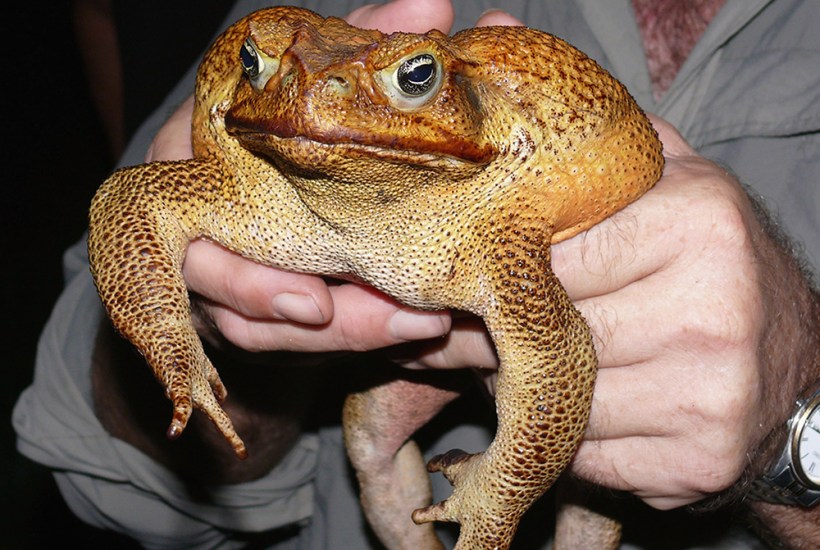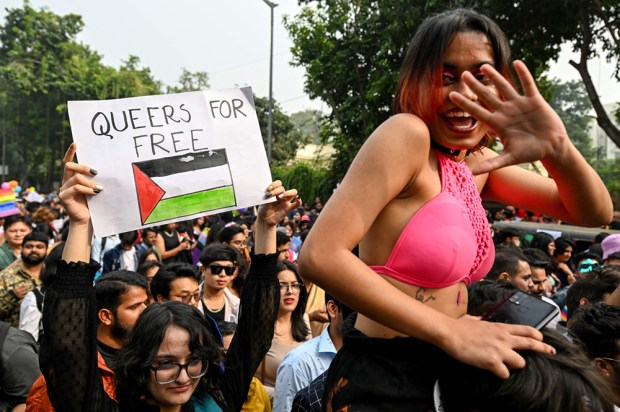Here’s a brand new Australian political expression I’ve just coined: ‘cane toad politics’. I expect it to take its place among other distinctively Australian political terms such as ‘barbecue stopper’ and ‘pub test’. And when it does – remember you read it here first. ‘Cane toad politics’ refers to those policies and political actions that are designed by intelligent and benevolent people – but which (much to their surprise) create a monster. The background: cane toads were introduced into Australia to control destructive beetles in Queensland’s sugar-cane crops. The decision was made by scientists (a plant pathologist and an entomologist) and supported by Prime Minister Joseph Lyons. The (unintended) result is that there are now some 200 million cane toads in Australia – stretching from Kakadu in the west to Sydney in the south. They cause significant environmental damage and poison predators that try to eat them. So, any political policy or action designed by intelligent, well-intentioned, benevolent people which then turns out to be a destructive monster is an example of ‘cane toad politics’.Can you think of any government policy that deserves this label? Pink batts? Robodebt? And countless others. Now we are being offered the biggest ‘cane toad policy’ so far – the Voice. (Do you like my new coinage?) (I do – ed.)
With Donald Trump’s official ‘mug shot’ all over the news, we should look at this expression. The term ‘mug shot’ is first recorded in 1950 in Wentworth and Flexner’s Dictionary of American Slang. The official definition is, ‘A photograph of a person’s face, esp. in police or other official records.’ So why is it called a ‘mug shot’? Where did that come from? An unattractive face has been called a ‘mug’ since the 1700s. There is no certainty, but it seems quite likely that it came from the type of drinking vessel called a ‘Toby jug.’ This was dominated by a squat figure with an enlarged and grotesque face. And because this was a ‘jug’ (or ‘mug’) dominated by a comic face, an unattractive or comic face (and then just any face) has come to be called a ‘mug’. Hence Donald Trump and his ‘mug shot’.
The language problem with the Albanese government’s proposed laws against ‘misinformation’ and ‘disinformation’ is that both of those words have the same core meaning – false. In other words, this Bill divides all utterances into just two categories: true and false. But there are (in reality) at least four different categories of utterances: (1) true, (2) false, (3) disputed, and (4) opinion. Clearly the purpose of the legislation is to lump 2, 3, and 4 together and ban them under the misleading claim they are all false. There will be no room for utterances that dispute the facts, or for those that express an opinion about the facts. Unless the government can be persuaded (at the very least) to adopt a more intelligent understanding of utterances, a dark pall of censorship will fall.
Demographer Bernard Salt often writes about language in his Weekend Australian column. And recently he did so again, making the (to me) strange claim that ‘mate’ is disappearing from Australian English and being replaced by ‘bro’. He claims that ‘bro’ is ‘widely used to the extent that I wonder whether it is on a mission to supplant that most Australian of terms: mate.’ He then adds, ‘The ascendancy of bro is evidence of a social and cultural shift in Australia in the post-pandemic world. Our language is increasingly aligning with our culture influences and geopolitical partners.’ Really? I don’t know what survey (if any) Bernard is quoting – but I listen carefully to the spoken Australian language, and I don’t detect what he claims. ‘Bro’ (as I’m sure you know) is an abbreviation for ‘brother’. It is originally appeared in the Caribbean and the US southern states in African-American usage (first recorded in 1832). I don’t know who Bernard Salt is listening to, but they are not typical Aussies, nor do they represent most Aussies. You’ll be pleased to know there is no evidence of ‘mate’ dying out, or of this awkward Americanism ‘bro’ replacing it. (Or is it that Bernard Salt’s hometown of Melbourne has never really been part of mainstream Australia?)
Got something to add? Join the discussion and comment below.
Get 10 issues for just $10
Subscribe to The Spectator Australia today for the next 10 magazine issues, plus full online access, for just $10.
Contact Kel at ozwords.com.au.
You might disagree with half of it, but you’ll enjoy reading all of it. Try your first month for free, then just $2 a week for the remainder of your first year.














Comments
Don't miss out
Join the conversation with other Spectator Australia readers. Subscribe to leave a comment.
SUBSCRIBEAlready a subscriber? Log in